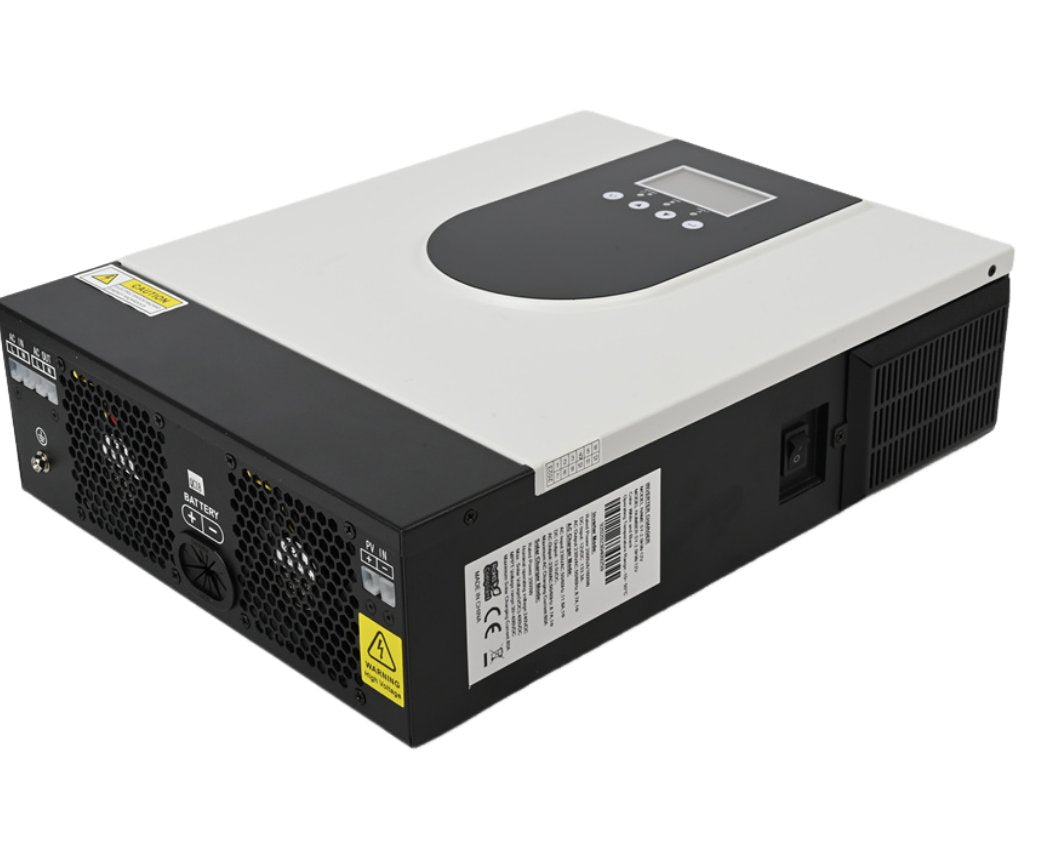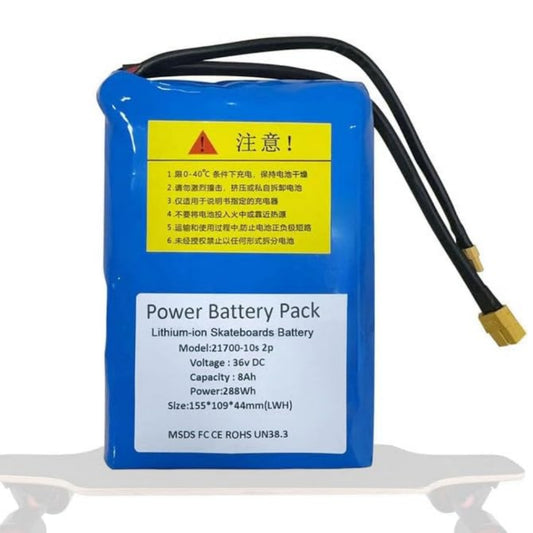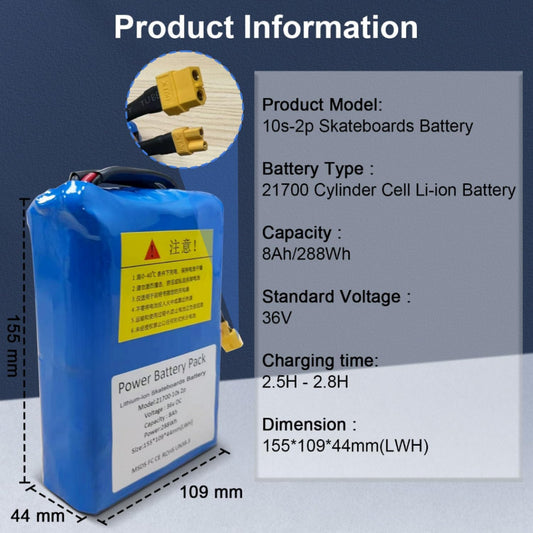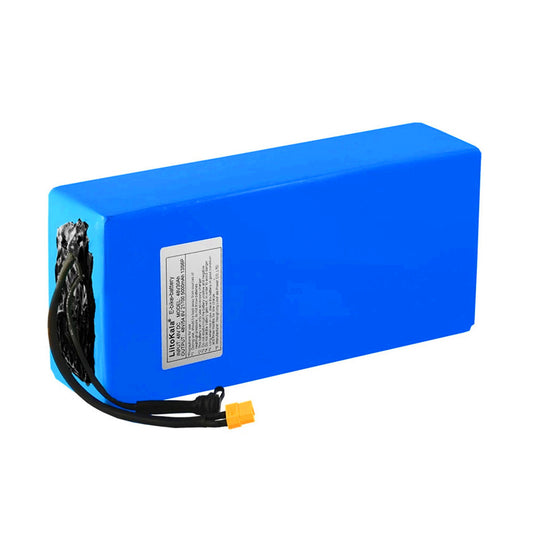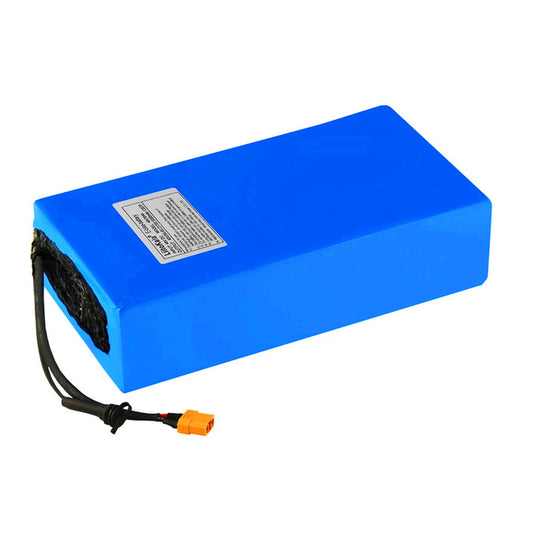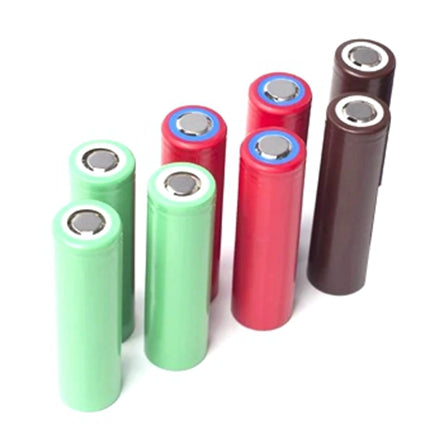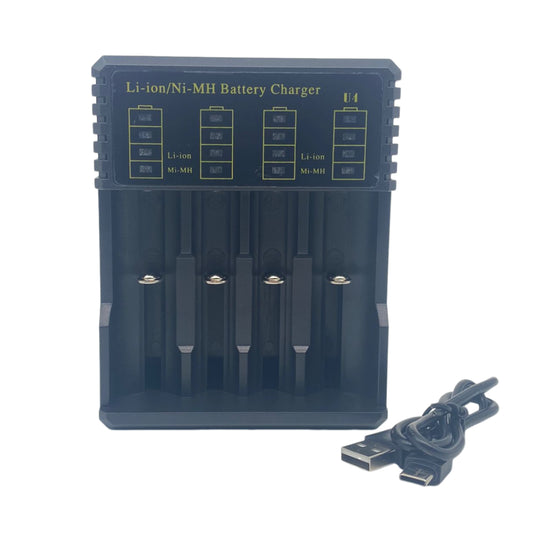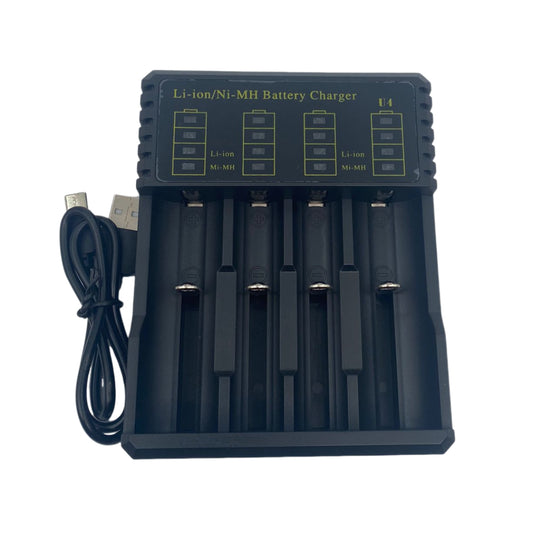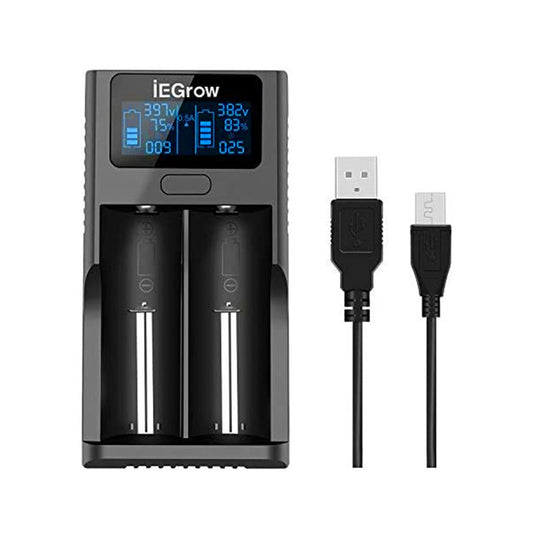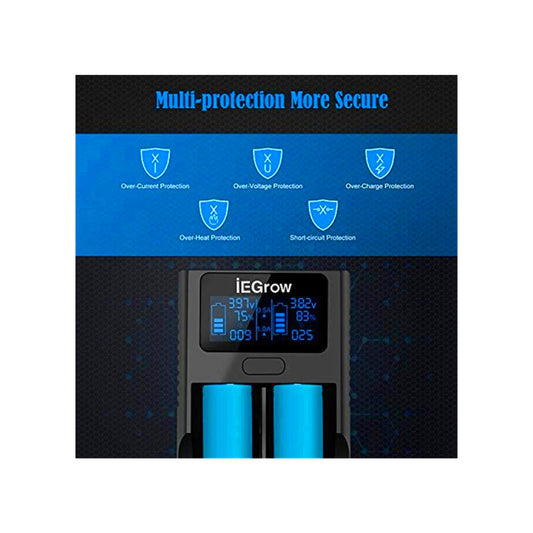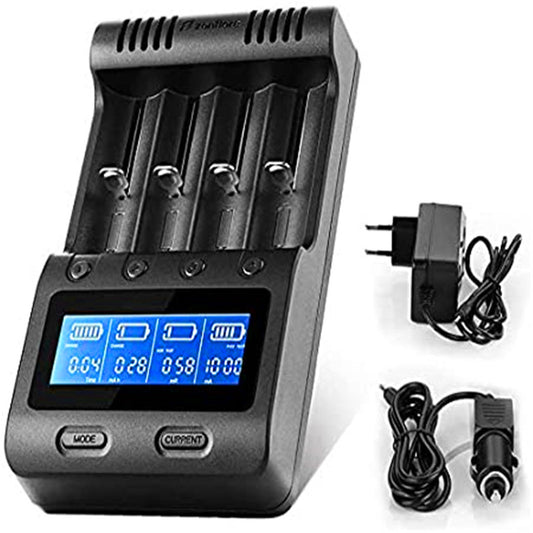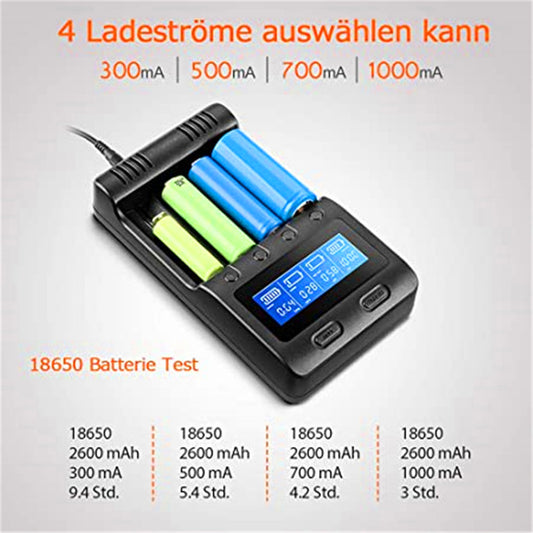The outstanding energy storage and efficiency of 18650 batteries have made them a the best power source for a series of modern devices, from cameras to portable power tools. That means it is necessary to understand proper charging techniques, as correct charging methods can significantly extend the lifespan of rechargeable 18650 batteries, enhance their performance, and ensure their safety.
BatteryInt will provide you with straightforward steps and helpful tips to efficiently and safely to help you charge 18650 lithium-ion batteries. Let's get started to ensure your devices are always powered up and ready to go!
The Charging Process of 18650 Batteries
To understand how to charge battery better to avoid issues occur, we need to know the charging process of 18650 batteries. Let's break it down:
High Voltage Charging
Initially, the 18650 battery undergoes high voltage charging. This phase aims to charge the battery at a higher voltage to quickly bring up its charge level.
It's important to monitor this stage closely to avoid overcharging, which can damage the battery.
Constant Voltage Charging
Once the battery reaches a certain voltage level, the 18650 battery charger switches to a constant voltage mode. The charger will maintain a steady voltage to the battery while allowing the current to decrease gradually. So it can prevent topping off the battery's charge without the risk of overcharging.
Constant Current Charging
The next stage is constant current charging, where the 18650 battery is charged at a fixed current level. It is crucial for stabilizing the battery chemistry and ensures a deep, thorough charge, improving the battery's overall capacity and health.
Types of Chargers for 18650 Batteries
Selecting the right charger is crucial for ensuring your 18650 rechargeable batteries are charged efficiently and safely. In addition, you can also choose other types of chargers for special charging needs. Let's have a look:
Smart Chargers
These 18650 chargers are equipped with intelligent technology that can adjust the charging rate automatically depending on the battery’s condition and capacity. They are ideal for maximizing battery life and safety, as once the battery is fully charged, the smart charger will prevent overcharging by switching to a trickle charge mode or stopping altogether.
Multi-bay Chargers
Multi-bay chargers can charge several batteries at once, making them perfect for users who need to prepare multiple 18650 batteries for alternative. The multi-bay chargers often come with individual monitoring and charging circuits for each bay, ensuring each battery is charged based on its condition.
Portable USB Chargers
For those on the go, portable USB chargers offer the convenience of charging 18650 batteries with USB power source. These chargers are compact and easy to carry and ideal for outdoor traveling and activities.
High-speed Chargers
High-speed chargers are designed for charging batteries quickly, reducing downtime. But on the other side, it comes with the issue that high-speed chargers can decrease a battery's lifespan if used frequently.
When comparing basic chargers to smart chargers, the latter are recommended due to their overall advanced features that ensure better charge management and battery health. If you don't have a special need, high-speed won't be the best choice for most.
A good charger should feature charge indication, overcharge protection, compatibility with various battery types, portability, and a user-friendly interface.

Step-by-Step Guide to Charging a 18650 Battery
When safety is ensured, it's time for charging your 18650 batteries. Here's an easy guide for reference to help charge safely and effectively:
Preparing Your Battery and Charger:
Ensure that the battery and charger are clean. Wipe away any dust or debris with a dry cloth.
Verify that the battery is not damaged and that the charger is compatible with 18650 batteries.
Inserting the Battery into the Charger:
Place the 18650 battery into the charger, aligning the positive (+) and negative (-) terminals correctly. This alignment is crucial to prevent any potential short circuits.
Setting the Correct Charging Mode:
If your charger has multiple settings or modes, set it to the appropriate mode for 18650 batteries. This typically involves selecting the right battery voltage and current as recommended by the battery’s manufacturer.
Monitoring the Charging Process:
Keep an eye on the charging process. Most modern chargers have indicators or displays that show the progress of the charge. Some may switch off automatically when the battery is fully charged, while others might require manual intervention.
What to Do Once Charging Is Complete:
Once the charger indicates that the battery is fully charged, promptly remove the battery from the charger. This prevents overcharging, which can reduce battery life and effectiveness.
Store the charged battery in a cool, dry place if it is not going to be used immediately.

Safety Precautions Before Charging
Before you begin charging your 18650 lithium-ion batteries, it’s essential to tak several safety precautions to avoid any risks and ensure the longevity of your batteries. Here’s what you need to keep in mind:
Check Battery Condition
Inspect each 18650 batteries for any signs of damage, such as dents, swelling, corrosion or leaks. Damaged batteries can be dangerous and should be disposed of.
Use a Compatible Charger
Always use a charger that is specifically designed for 18650 batteries and meets the battery manufacturers' advice. Using an incompatible charger can lead to overcharging, battery failure or other risks.
Feature with Protective Circuits
Many 18650 batteries come with built-in protective circuits that prevent overcharging, deep discharge, and short circuits. It is advised to use 18650 batteries with protective circuits. If you’re using a battery without a built-in circuit, ensure that your charger has appropriate safety features.
Charging Environment
Always charge your 18650 batteries in a safe, dry environment. Avoid charging in direct sunlight, high temperatures, or humid conditions, as these can affect the charging process and potentially lead to battery damage.
Never Leave Charging Batteries Unattended
While it might be convenient to leave batteries charging overnight or while you’re away, it’s safer to monitor the charging process. This allows you to react quickly if something goes wrong during the charge cycle.
Common Issues in Charging 18650 Batteries
Even with the best practices in place, sometimes you might encounter issues when charging your 18650 batteries. Here are some common problems and how to solve them:
Battery Won’t Charge:
- Check Connections - Ensure that the battery is properly inserted into the charger and that there are no loose connections.
- Inspect the Battery - Look for any visible signs of damage or wear. If the battery is damaged, it may need to be replaced.
- Try a Different Charger - If the battery still doesn’t charge, use another charger to determine if the issue is with the battery or the charger.
Signs of Battery Degradation:
- Reduced Performance: If the battery doesn’t hold a charge as long as it used to or doesn’t deliver the same power output, it might be nearing the end of its lifespan.
- Visual Inspection: Check for any swelling, leakage, or discoloration. These signs can indicate that the battery is degrading and should be replaced.
When to Replace Your 18650 Battery:
- Age and Usage: Consider replacing your battery if it’s several years old or has been charged and discharged many times. Most 18650 batteries have a lifespan of about 300-500 charge cycles.
- Consistent Issues: If you frequently encounter charging problems or the battery’s performance has noticeably declined, it’s probably time to get a new one.
FAQs
Can I use a phone charger to charge a 18650 battery?
No, you should not use a phone charger to charge a 18650 battery. Phone chargers are typically not equipped to handle the specific charging requirements of 18650 lithium-ion batteries, such as the correct voltage and current settings. Using a charger that does not meet battery manufacturer advice can lead to poor charging performance or even pose safety risks.
How long does it take to charge a 18650 battery?
The charging time for a 18650 battery can vary depending on the charger and the battery’s capacity. Typically, it takes about 3 to 6 hours to fully charge a 18650 battery with a standard charger. Using a fast charger can reduce this time, but it’s important to ensure the charger is compatible and safe for your battery.
Based on experience, the charging time formula is 18650 battery charge time=rated capacity/charge current*factor. The factor is usually set to 1.2, 1.3 and 1.5. And you can calculate your normal charging time.
Is it safe to leave a 18650 battery charging overnight?
It is generally not recommended to leave a 18650 battery charging unattended for long periods, including overnite. While many modern chargers have safety features to prevent overcharging, there is always a risk of malfunction or overheating. It's safer to charge the battery when you can monitor it and remove it once it’s fully charged.
At what voltage is a 18650 battery dead?
If an 18650 battery voltage reaches below 2.5V, the protection circuit will shut down all operations and the battery goes into a sleep mode. Most battery chargers won't charge a battery below 2.5V, so the battery is dead. Generally, don't let your 18650 battery voltage lower than 3.0V.
How to check my 18650 lithium battery health?
A voltmeter or multimeter will help! You can check with them to know if the battery is dead or not. If it shows the 18650 battery voltage is lower than the one listed on the battery by the manufacturer, don't hesitate to replace the battery.

